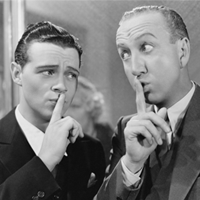I often receive questions along these lines:
“What’s the best way to predict a price reversal?”
“What’s the best combination of indicators?”
“What’s the best trade entry/exit signal?”
Almost everyone who comes into trading asks such questions at one time or another.
The blunt answer is, “It depends”
Normally, I’d just give this reply and move on.
But today, I’d like to delve a little deeper into these questions, because they imply a fundamental misunderstanding about how trading works.
It’s like asking, “what’s the best way to catch a fish?”
It sounds like a simple question. But to a real fisherman, this is a bizarre thing to ask because there’s no mention of the context.
“What’s the best ____?”
“What’s the fastest car?”
“What’s the best kitchen knife?”
“What’s the best pickup line?
These are questions commonly asked by beginners who (don’t know any better than to) search for simple answers.
To these questions, a sincere practitioner would answer, “it depends”.
What type of driving track are you talking about? A winding street? A professional race track? A dirt road?
What type of cuisine will you be mostly cooking? Italian? Japanese? Vegetables? Meat?
What type of woman are you looking to meet? Where are you? In a club? On the street? In the library?
An effective answer will depend largely on the context. The expert knows this, which is why he can’t give you a straight and simple answer — the answer depends on the situation.
You see, people tend to over-theorize trading, which leads them to ignore the ongoing market context.
In practice though, context is everything.
“Here’s the best ____!”
The ‘easy answer’ mindset is one that’s encouraged by savvy salesmen and trading gurus. As I wrote in Forex Dreaming, tactics-focused trading courses will sell like hotcakes on a cold winter morning, because it is human nature to look for silver bullet answers.
The blunt truth is that few people are interested in taking the time to understand and appreciate the fundamental principles of trading. Most just want a quick-fix answer, and there’s no lack of marketers who will happily sell you the promise of it.
Imagine going to a pharmacist and asking for the “best medicine.” He turns around, picks a bottle off the shelf, and places it on the counter. “Here’s the best medicine” he tells you. Do you purchase it?
I hope you’re smart enough not to. Obviously, the “best medicine” depends entirely on the illness and the patient’s circumstances!
Back to the question
So how can we begin to answer the question: what’s the best indicator/signal of a reversal/trend continuation?
First of all, you need to realize that there’s no clear-cut, fixed answer. As you know by now, it depends on the situation.
Here are some factors to take into consideration:
- How has the market been generally behaving? Has it been trending strongly or weakly? Has it been ranging?
- How volatile has the price been over the past week?
- What are the economic/political themes currently driving the market?
- How has the market price been acting in the short-term?
These factors change all the time, which is why there’s no one signal that can consistently predict market prices. When the factors change, what used to work stops working.
This is why I almost always prioritize fundamentals over tactics. Once you understand how the various factors impact market prices, you’ll be able to reasonably estimate the likelihood of a price reversal/continuation based on almost any combination of these factors.
But, you’ll need to put in the work, to: Observe, infer, and adjust your views. Rinse and repeat.
There’s no better way to learn than through first-hand experience.

Seems like about 12 months since I heard from you. I was wondering about your whereabouts only about three days ago. 🙂
Hi Chris! Oh yes man! I was one of those type whose needy for quick answer so badly. Lol back in the days, funny how that I couldn’t even think of the phrase “nothing comes for free”. Time is gold. Gold has value, like $$$. I’ve paid less time to learn, less knowledge gained has led me to half-way in order to complete the stages to Master in trading. I believe for the non traders also can simply think there is no short-cut to success. Not to say, those kids at the age probably around 5 or 7 years old should already know that time should be invested patiently in order to save 10cen 50cen inside the piggy from day to day. What ever it is, I have mastered now already, worth the struggles. Took me 8 years to learn, TOO FREAKIN’ LONG due to bad habits. But there’s just one thing that has kept me alive until now was making several adjustments from myself. Thanks to you, Chris. 🙂 Peace out!
Thanks, Camillius. 🙂
I always look forward to read you, you are just so professional the way you handle questions,am sure its helps a lot to those who would listen, that there is no short cut to long lasting trading success other than long trading experience that will generate personal strategy for handling every market condition that may appear.
MATHEW OJONUGWA